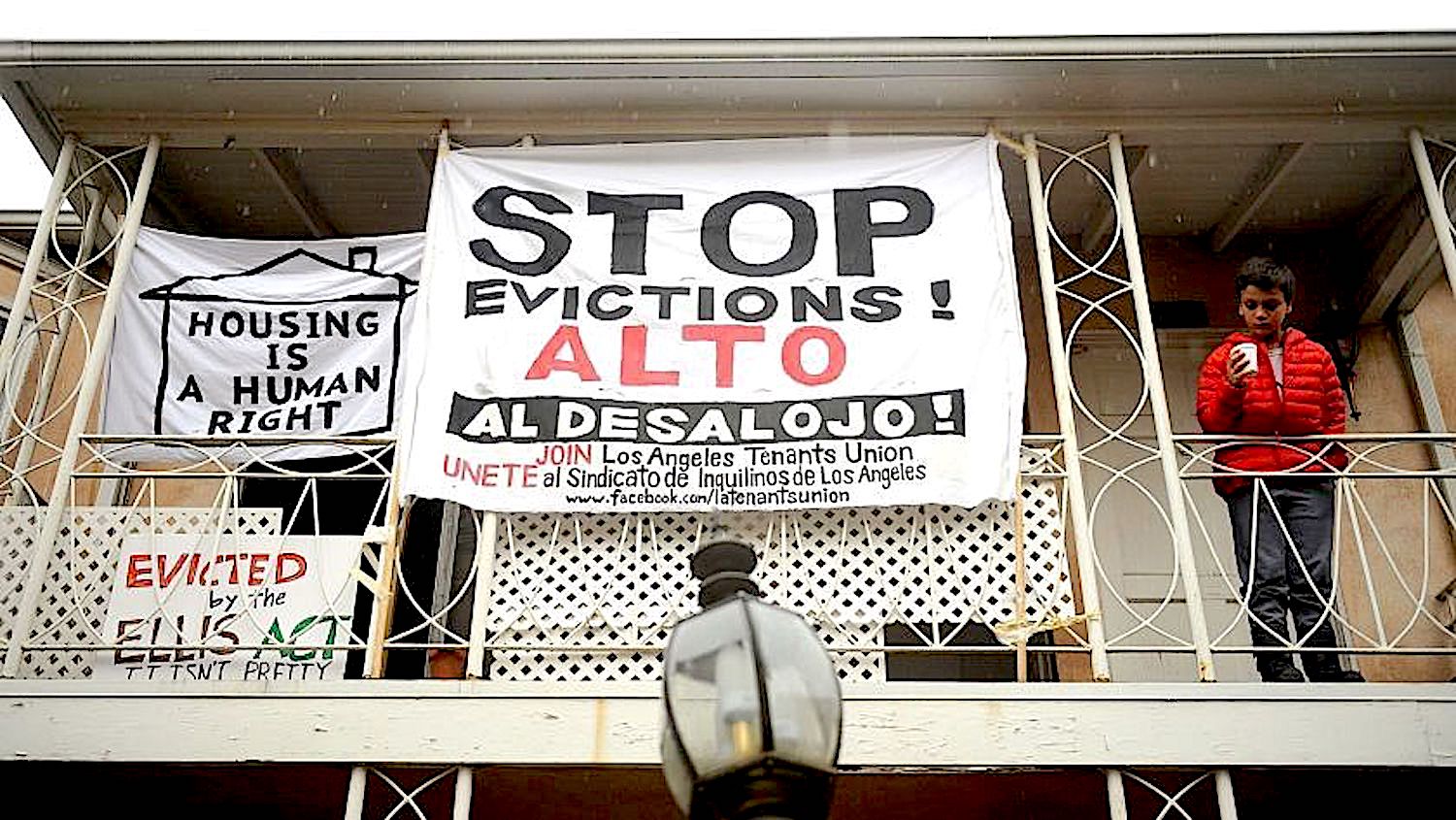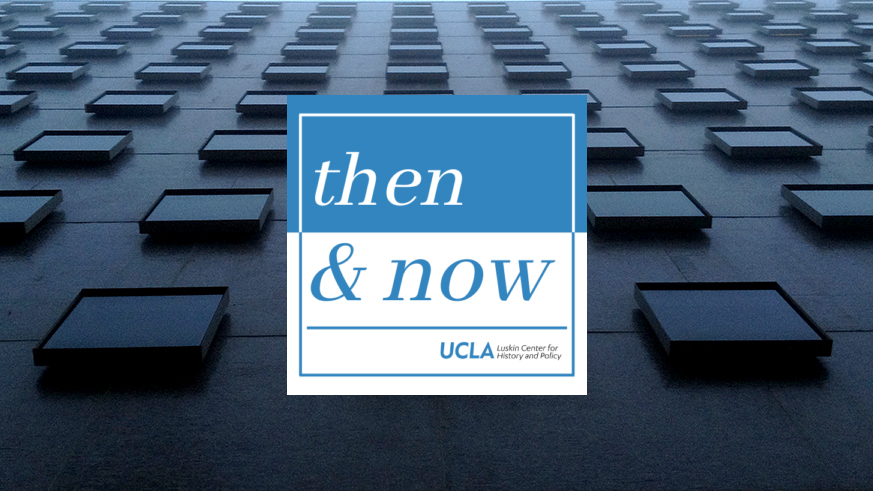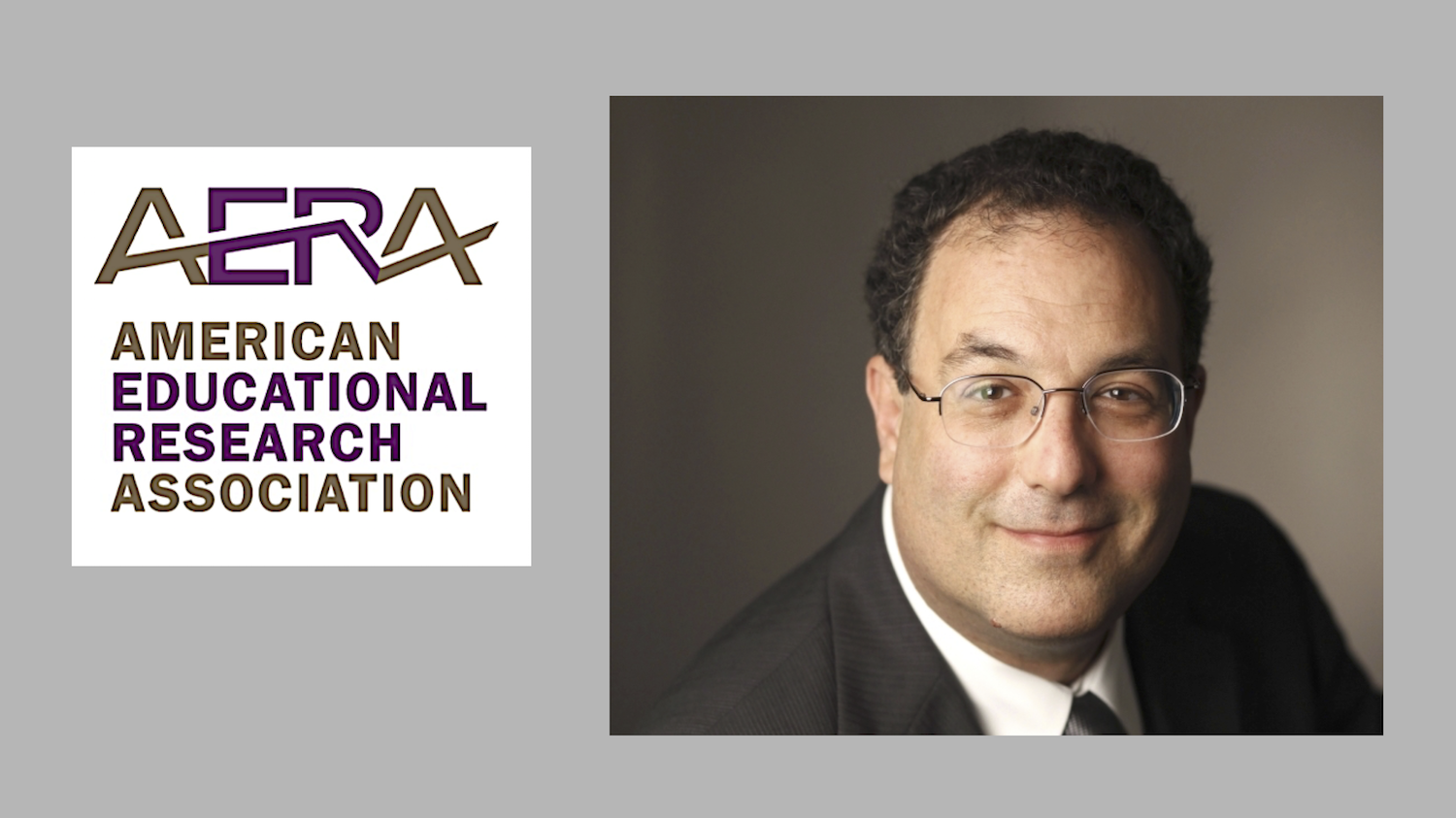Helping Students, Teachers and Families Cope With COVID-19
Professor Ron Avi Astor and Ph.D. student Kate Watson of UCLA Luskin Social Welfare teamed up with Professor Rami Benbenishty of Hebrew University to create a set of questionnaires to assess how well teachers, students, parents and others are coping during the COVID-19 pandemic. The questionnaires have been widely distributed to social workers, educators and psychologists at no cost. “Schools can respond better to the most pressing needs of their students, teachers and families amid the COVID-19 pandemic by hearing the entire community,” Astor told Ampersand, a publication of the UCLA Graduate School of Education and Information Studies. Sample questionnaires, available at these links for teachers, students and parents, may be used in conjunction with abridged versions of two books co-authored by Astor and Benbenishty: “Mapping and Monitoring Bullying and Violence: Building a Safe School Climate” and “Welcoming Practices: Creating Schools That Support Students and Families in Transition.” Astor and Benbenishty will also appear at a free UCLA Luskin Summit webinar on “A New Normal for Schools During the Pandemic” on Monday, May 4, at 9:30 a.m. To register and attend the webinar, visit this link.
Here is Ampersand’s full interview with Astor:
Shelter-in-Place Burden Felt Keenly in Vulnerable Neighborhoods
A new report from the Institute on Inequality and Democracy at UCLA Luskin and the public interest consulting firm Ong & Associates examines the disproportionately high burden of shelter-in-place orders on low-income and minority neighborhoods in Los Angeles County. The report illustrates race and class inequalities at the neighborhood level as communities follow mandates for social distancing to slow the spread of COVID-19. According to the report, the communities most burdened by these mandates are “those with the greatest exposure to possible virus carriers, the highest stress levels associated with struggling to remain physically fit, and the most challenges to fulfilling essential daily or weekly needs.” To measure this vulnerability, researchers developed a “shelter-in-place burden index” that analyzed factors such as population density and access to public parks and supermarkets. According to the report, the analysis shows that “over-burdened neighborhoods tend to be low-income with a disproportionately large number of people of color and to suffer from a digital and transportation divide.” The report’s authors called on governments, foundations and community organizations to assist neighborhoods with the greatest need and develop equitable programs for social and economic recovery. “This is not the time to yield to the relatively few clamoring for an opening of the U.S. economy, without regard for the spread of the coronavirus. It is the time that we recognize and close the socioeconomic gap through actions that ensure fairness and justice,” II&D Director Ananya Roy noted.
Emergency Fund Will Support UCLA Luskin Students
UCLA Luskin has launched two new funds to support students experiencing hardship during the COVID-19 pandemic. The Luskin School Student Emergency Fund focuses on providing emergency support and technological tools to students with financial need. The Luskin Undocumented Masters & Ph.D. Student Support Fund focuses on undocumented graduate students who have been hit hard by the pandemic but are ineligible for federal assistance. The funds are aimed at alleviating financial stress so that students can focus on academic success — in particular, on learning how to make an impact on the world with a UCLA Luskin education. Donations to the Luskin School Student Emergency Fund will be matched by a UCLA Luskin board member, including a dollar-to-dollar match up to $5,000 and an additional $5,000 if the fund receives donations from at least 100 donors. That fund will provide laptops, access to strong internet connections and other technology upgrades to students in need, in addition to emergency financial assistance. “Now more than ever, strength of community is imperative as we brave through this unique period of history,” Dean Gary Segura wrote in an open letter to the UCLA Luskin community. “We look to our alumni, parents, staff and friends to come together, for both keeping camaraderie for each other and to support our students.”
Yaroslavsky on Tensions Between L.A. County Supervisors and Sheriff
Zev Yaroslavsky, director of the Los Angeles Initiative at UCLA Luskin, was the guest speaker on the UCLA Luskin Center for History and Policy’s inaugural podcast “Then & Now.” Yaroslavsky, a former five-term member of the Los Angeles County Board of Supervisors, commented in the first episode, “Of Supervisors and Sheriffs: Who’s Running LA County’s Emergency Operations?” It focused on current and past relationships between board members and the county sheriff. “There is this ambiguity or conflict — however you want to look at it — structurally, as a rule, looking at Los Angeles County,” Yaroslavsky said. “Those are the typical disputes that you have, but they get resolved.” Host David Myers, professor of history and director of the Center for History and Policy, noted that L.A. County Sheriff Alex Villanueva was removed as head of the county’s Emergency Operations Center in March. He asked whether brewing tensions “could have consequences for the county’s ability to respond to the crisis at hand,” referring to the outbreak of the novel coronavirus. “All units of the county are at their best in a time of crisis,” Yaroslavsky responded. He added that disputes between supervisors and the sheriff are not uncommon but added that he did not recall a conflict that questioned the fundamental authority of the board “or tried to go around the board of supervisors in implementing policies that were corrupt or illegal, as the case has been. And that’s where the current situation differs.”
Astor Honored With AERA Research Award
The American Educational Research Association has honored Social Welfare Professor Ron Avi Astor with a Distinguished Research Award for his co-written article on the role of school-level factors in suicidal ideation in California schools, published in the Journal of Pediatrics. The article was co-written with Astor’s colleagues, Rami Benbenishty, professor emeritus at the School of Social Work at the Hebrew University of Jerusalem, and Ilan Roziner, professor at the Coller School of Management at Tel Aviv University. Astor holds the Marjorie Crump Chair in Social Welfare and has a joint appointment at UCLA’s Graduate School of Education & Information Studies. He spoke about his research into suicide ideation among California students with the GSEIS publication Ampersand:

UCLA Voting Rights Co-Founder Wins Texas Vote-by-Mail Case
Texas voters will have access to vote-by-mail ballots during the global pandemic as a result of efforts by UCLA faculty member Chad Dunn, director of litigation for the Voting Rights Project. Dunn, an attorney, brought suit on behalf of the Democratic Party in Austin, Texas, seeking to clarify election law in the state regarding eligibility for a mail-in ballot. Texas is among just 17 states that require voters to provide an excuse to receive a mail-in ballot, one of the strictest absentee ballot policies in the country. The Texas effort was among several recent initiatives advocating wider access to vote-by-mail amid the COVID-19 pandemic that have been initiated by Dunn along with colleagues at UCLA affiliated with the Latino Policy and Politics Initiative (LPPI). Representing Texas plaintiffs who fear contracting the novel coronavirus during in-person voting, Dunn successfully argued that social distancing or being confined at home falls under the disability exception for a mail-in ballot in Texas. A judge agreed, saying he will issue a temporary injunction allowing such voters to cast mail-in ballots in upcoming elections. “The right to vote is fundamental, and the judge’s ruling shows that public health must be at the forefront,” Dunn said after the hearing. “If the judge’s ruling holds, we will have ensured that all 16 million eligible Texans are able to safely vote in the July runoff elections and in November if they so choose.”






